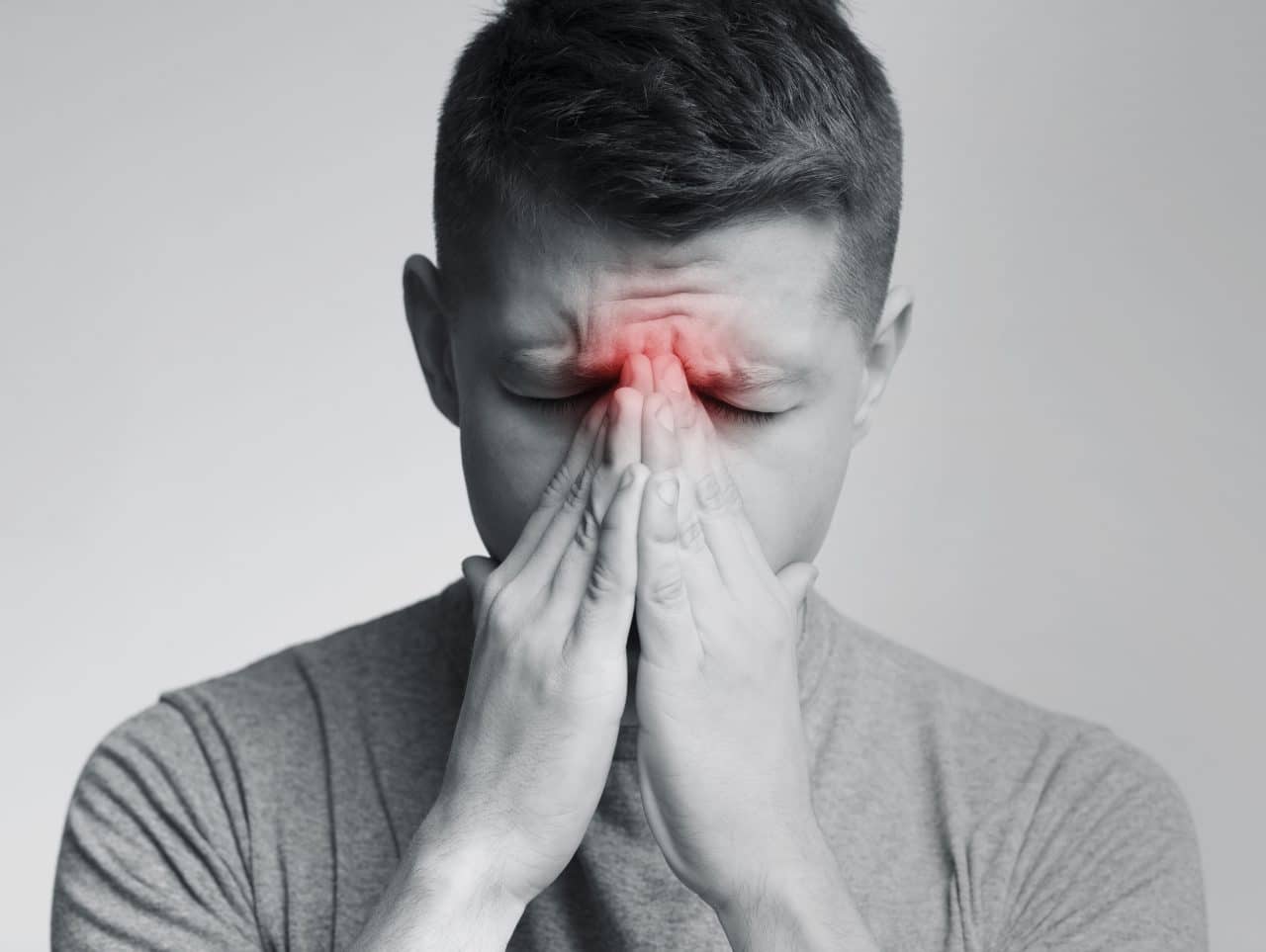Though allergic rhinitis is commonly referred to as “hay fever,” a fever is not actually a symptom of allergies. However, in some cases, allergies can trigger a sinus infection, which can cause fever. We review the relationship below.
Symptoms of Allergies

The best way to determine what condition is causing your symptoms is to look at the symptoms. Symptoms of allergies include:
- Itchy, watery eyes
- Runny nose
- Sneezing
- Headache
- Sore, scratchy throat
- Wheezing
- Coughing
- Fatigue
- Nausea and diarrhea
- Skin rash or hives
How Allergies Can Lead to a Sinus Infection
The sinuses are air-filled behind your forehead, cheeks and eyes. The lining of the sinuses secretes mucus that normally drains out the nose to clear debris and prevent infection.
When you experience allergies, the sinuses can become blocked or swollen, causing the mucus to build up and bacteria to grow.
Symptoms of a Sinus Infection
Symptoms of a sinus infection include:
- Facial pain/pressure.
- Thick nasal discharge.
- Postnasal drip.
- Bad breath.
- Toothache.
- Cough.
- Fatigue.
- Fever.
Note that you can experience both allergies and a sinus infection at the same time.
Treatment for Allergies
To prevent a sinus infection caused by allergies, you can:
- Practice avoidance of known allergens. You can practice avoidance by staying indoors with the windows closed when pollen counts are high, hiring a professional for outside chores, keeping pets out of bedrooms, running an air purifier, etc.
- Take an antihistamine. These medications work by reducing the amount of histamine the body produces. First-generation antihistamines, like Benedryl, can cause drowsiness and should only be taken short-term. Second-generation antihistamines, like Claritin, Zyrtec and Allegra, can be taken daily to prevent allergies. Talk to your pharmacist at LoRex Drugs for detailed instructions.
- Undergo immunotherapy. Immunotherapy works by introducing small amounts of allergen extracts into the body so that the immune system can build up a tolerance over time. There are two types of immunotherapy: allergy shots and allergy drops.
How to Treat Sinus Infections
Sinus infections may be treated at home by:
- Applying a warm compress to the nose and sinuses.
- Drinking plenty of fluids to thin your mucus so it can drain more easily.
- Using a saline nasal rinse to flush out the sinuses.
- Taking an over-the-counter decongestant as directed.
A doctor may treat a sinus infection by:
- Prescribing antibiotics.
- Recommending surgery in cases of severe, chronic infections.
For more information or to schedule an appointment, call Carolina Pines ENT today.
